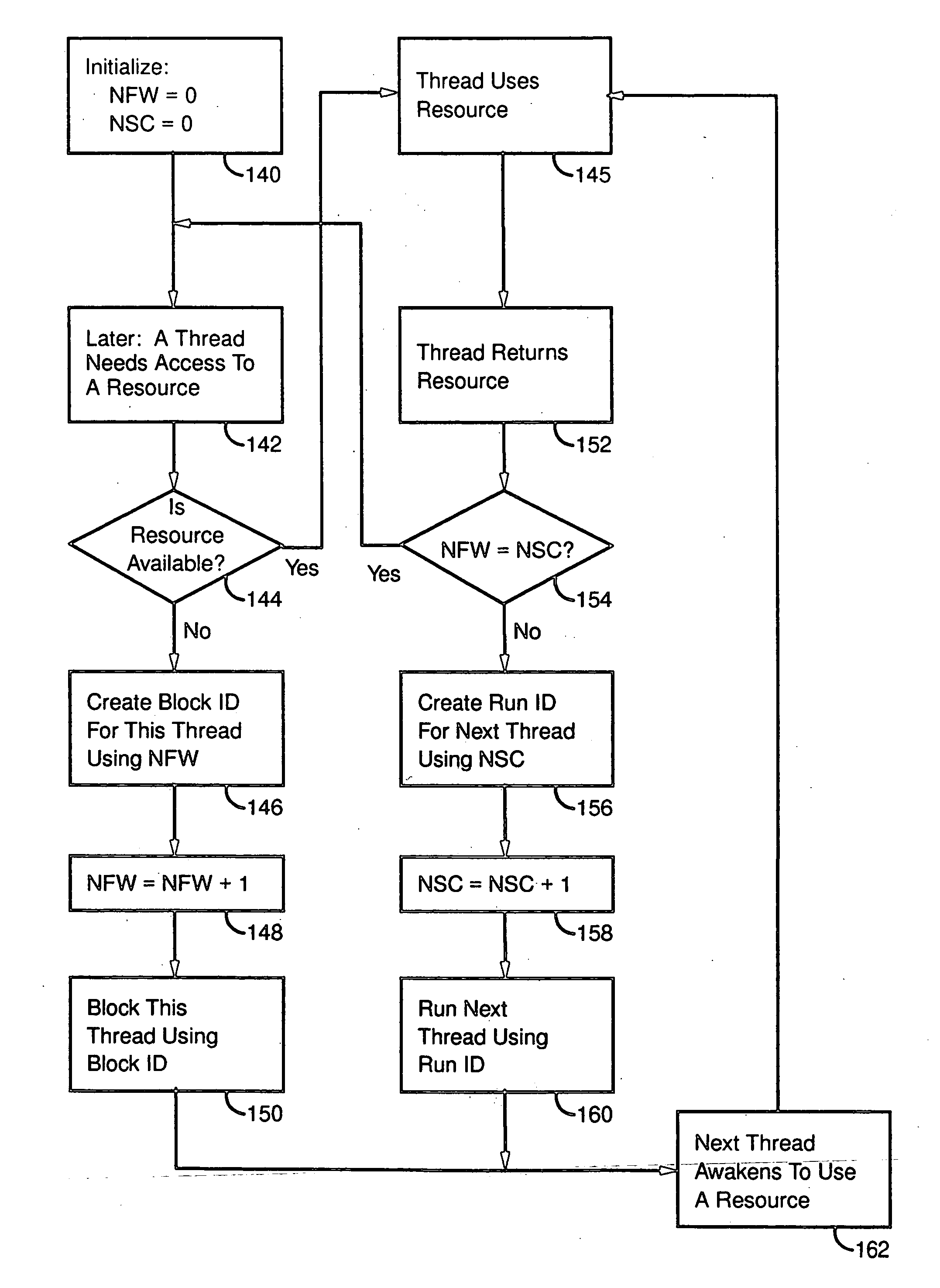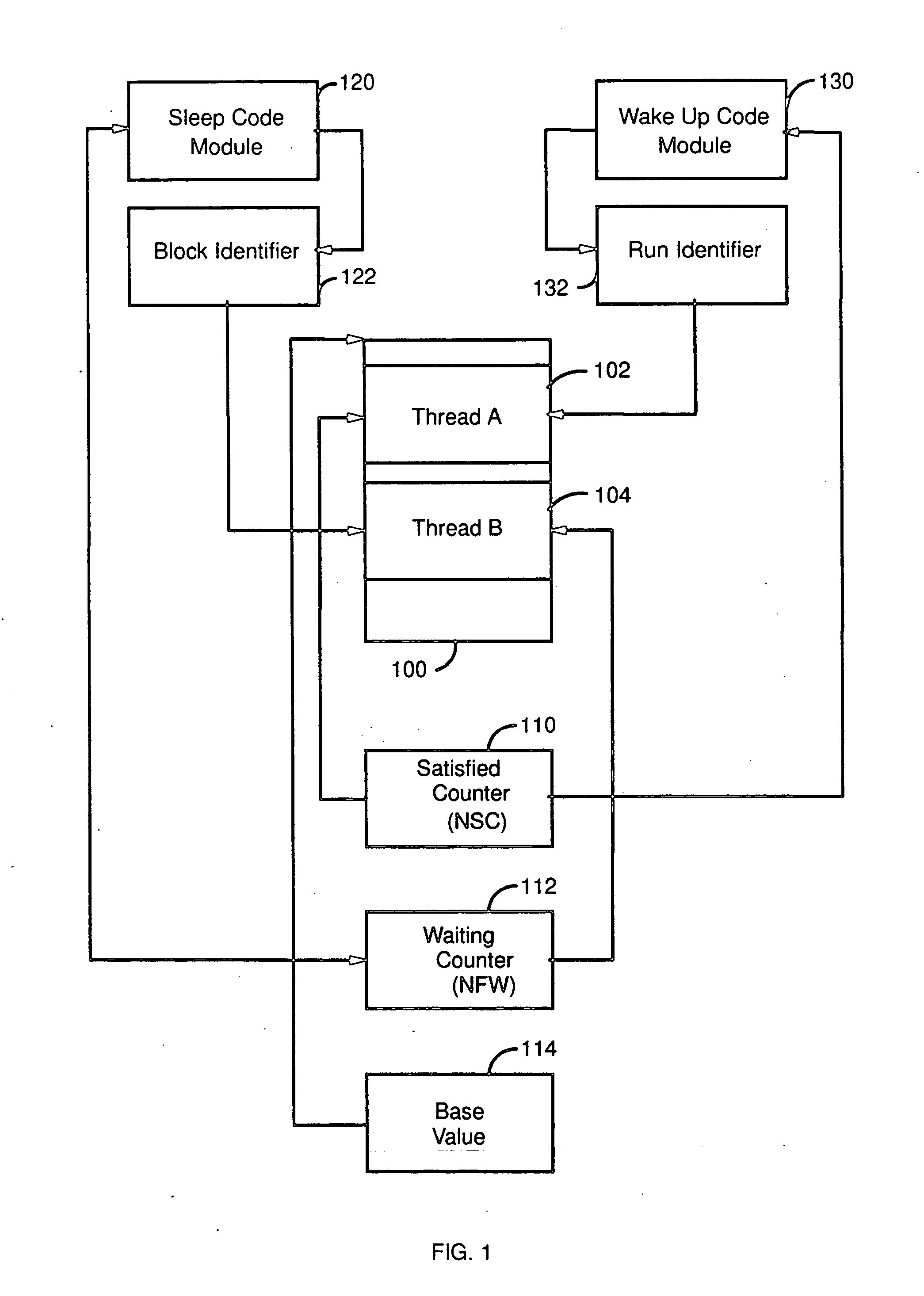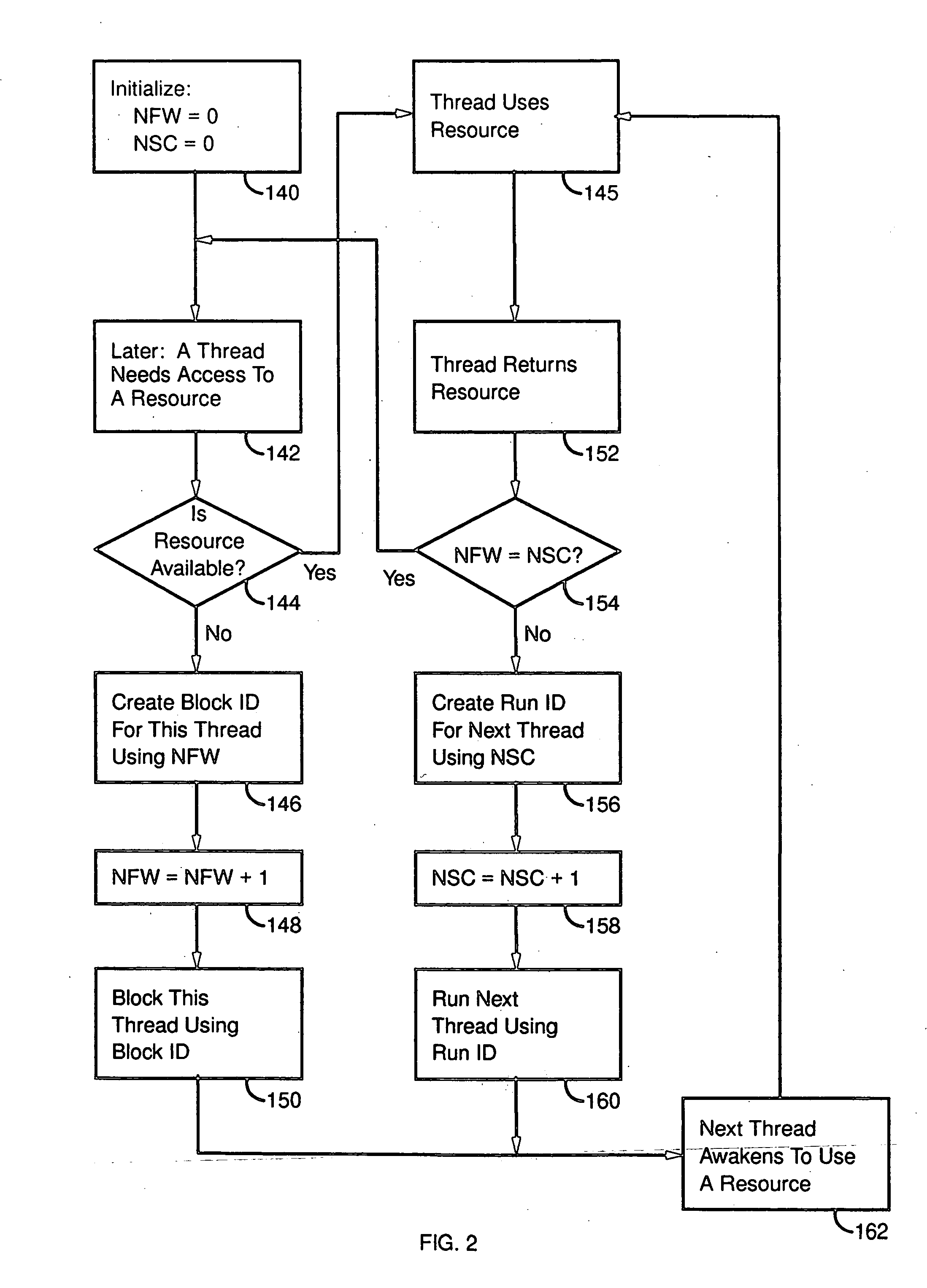Stationary queue for scarce resource management
a scarce resource and queue technology, applied in the field of shared resource management, can solve the problems of excessive churn on the system's process (or thread) run queue, waste of cpu cycles, and unnecessarily complex approaches, and achieve the effect of minimizing system churn
- Summary
- Abstract
- Description
- Claims
- Application Information
AI Technical Summary
Benefits of technology
Problems solved by technology
Method used
Image
Examples
Embodiment Construction
[0020] In accordance with this invention, the solution to this scarce resource management problem produces the same result as a queue or FIFO, but there is no memory actually associated with the queue or FIFO structure. No data or identifiers are moved into or out of this queue, hence the term ‘stationary’. Only the read and write pointers of the queue need be maintained since the data that would ordinarily be stored in the queue is impliedly the counter, or pointer, values themselves.
[0021] Referring to FIG. 1, to solve this problem in an efficient manner requires two brief sections of code:
[0022] 1) Sleep Code 120
[0023] This routine generates a unique ‘Block ID’122 when a process thread 104 temporarily cannot gain access to a scarce or serially reusable resource and must be suspended.
[0024] 2) Wakeup Code 130
[0025] This routine generates Run IDs 132 in the same order as the Block Ids 122 so that, when the contested resource becomes available, the next thread 102 in line is rean...
PUM
 Login to View More
Login to View More Abstract
Description
Claims
Application Information
 Login to View More
Login to View More - Generate Ideas
- Intellectual Property
- Life Sciences
- Materials
- Tech Scout
- Unparalleled Data Quality
- Higher Quality Content
- 60% Fewer Hallucinations
Browse by: Latest US Patents, China's latest patents, Technical Efficacy Thesaurus, Application Domain, Technology Topic, Popular Technical Reports.
© 2025 PatSnap. All rights reserved.Legal|Privacy policy|Modern Slavery Act Transparency Statement|Sitemap|About US| Contact US: help@patsnap.com



